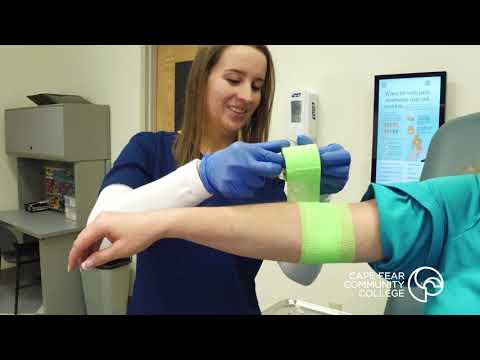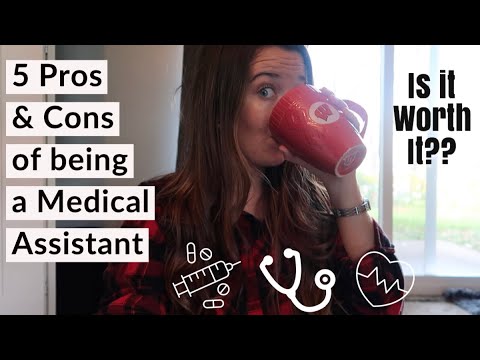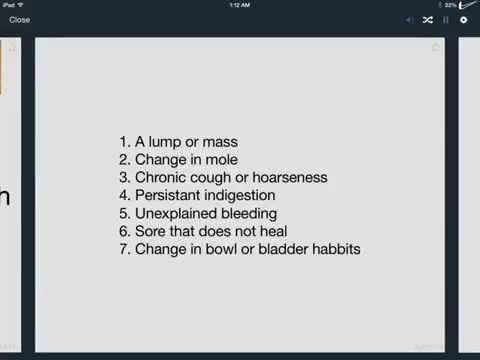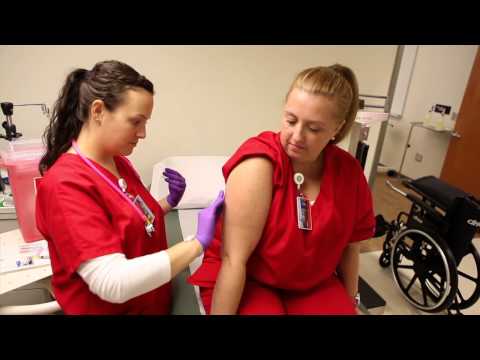Is a Medical Assistant Considered a Healthcare Professional?
Contents
- What is a medical assistant?
- What are the duties of a medical assistant?
- What are the educational requirements for a medical assistant?
- What are the skills required for a medical assistant?
- What are the job prospects for a medical assistant?
- What is the salary range for a medical assistant?
- What are the benefits of being a medical assistant?
- What are the challenges of being a medical assistant?
- What are the career paths for a medical assistant?
- What is the future of medical assistants?
There’s some debate on whether or not Medical assistants are considered healthcare professionals. Here’s a look at the arguments for and against.
Checkout this video:
What is a medical assistant?
Medical assistants are healthcare professionals who perform a variety of administrative and clinical tasks to support the work of healthcare providers. They work in a variety of settings, including doctor’s offices, clinics, and hospitals.
Medical assistants typically have an associate degree or certificate from a medical assistant program. Some states have certification requirements for medical assistants.
Medical assistants typically perform a variety of tasks, including taking medical histories, scheduling appointments, taking vitals signs, preparing patients for examinations, and assisting with minor office surgeries. They may also handle billing and insurance paperwork.
Some medical assistants specialize in a particular area of medicine, such as podiatry or optometry.
What are the duties of a medical assistant?
Medical assistants are allied health professionals who perform a variety of tasks in doctors’ offices and other outpatient care facilities. Most medical assistants have completed a postsecondary education program, but some are trained on the job.
The duties of medical assistants vary depending on state law and the size and type of facility in which they work, but they typically include taking patient histories, performing routine laboratory tests, assisting with examinations, and giving patients instructions on taking medications and preparing for procedures. They also may schedule appointments, handle insurance paperwork, and work with electronic health records. In some states, medical assistants may have additional responsibilities, such as measuring patients’ vital signs; removing sutures; administering electrocardiograms (EKGs); mixing and applying medications; and performing simple diagnostic tests, such as pregnancy testing or urinalysis.
What are the educational requirements for a medical assistant?
There are no formal educational requirements to become a medical assistant, although most have at least a high school diploma or equivalent. Many assistants complete a one-year certificate or associate degree program in medical assisting. These programs, which are offered by vocational-technical schools, community colleges, and some universities, include both classroom and clinical instruction in such areas as physiology, anatomy, Medical Terminology pharmacology, first aid, and recordkeeping. Some programs also include an externship component, in which students gain on-the-job training under the supervision of a healthcare professional.
What are the skills required for a medical assistant?
Medical assistants perform administrative and clinical tasks in healthcare settings. They may work in physicians’ offices, hospitals, clinics, or other facilities. Most medical assistants have postsecondary education such as a certificate or diploma, although some have completed formal medical assisting programs.
There are a variety of skills required for medical assistants. These include:
-Communication: Medical assistants must be able to communicate effectively with patients, families, and other members of the healthcare team. They must be able to explain procedures and instructions in a clear and concise manner.
-Interpersonal: Medical assistants must be able to work cooperatively with others. They must be able to interact with patients from a variety of backgrounds and cultures.
-Organizational: Medical assistants must be organized and detail oriented. They must be able to keep accurate medical records and schedule appointments.
-Technical: Medical assistants must have basic computer skills. They must be able to use electronic health records (EHRs) and practice management software.
What are the job prospects for a medical assistant?
There is currently a great demand for medical assistants, with job prospects expected to be very good in the coming years. Medical assistants play a vital role in healthcare, performing administrative and clinical tasks to support doctors and other professionals. If you are considering a career in healthcare, becoming a medical assistant could be a great option.
What is the salary range for a medical assistant?
May 30, 2019
The average salary for a Medical Assistant is $15.24 per hour in the United States Salary estimates are based on 4,837 salaries submitted anonymously to Indeed by Medical Assistant employees, users, and collected from past and present job advertisements on Indeed in the past 36 months. The typical tenure for a Medical Assistant is less than 1 year.
What are the benefits of being a medical assistant?
Medical assistants are versatile professionals who play an important role in healthcare. They provide patient care and administrative support, and often work in both clinical and office settings.
Many people choose to enter the medical assisting field because it offers a number of benefits, including:
-The opportunity to help others: Medical assistants can make a difference in the lives of their patients by providing quality care and support.
-Flexible hours: Medical assistants often have the ability to choose their own hours, which can be a great perk for those with busy schedules or families.
-A variety of job options: Medical assistants can find work in doctors’ offices, hospitals, clinics, and other healthcare facilities. There are also many opportunities for specialization, such as working with children or the elderly.
– competitive pay: According to the Bureau of Labor Statistics, medical assistants earned a median annual salary of $34,800 in 2019.* This means that half of all medical assistants earned more than $34,800 per year, and half earned less.
What are the challenges of being a medical assistant?
Medical assistants are healthcare professionals who provide support to doctors and other medical staff. They perform a variety of tasks, including taking medical histories, scheduling appointments, answering patient questions, preparing patients for exams, and assisting with procedures. They also may handle administrative tasks, such as billing and insurance paperwork.
Being a medical assistant can be both challenging and rewarding. The job requires a great deal of responsibility, as medical assistants play an important role in patient care. They must be able to multitask and handle a variety of tasks at once, while maintaining a high level of accuracy and attention to detail. In addition, they must be able to work well under pressure and maintain a calm demeanor in stressful situations.
What are the career paths for a medical assistant?
Medical assistants are professionals who support the work of physicians and other health care providers. They perform a variety of administrative, clerical, and clinical tasks in medical offices, clinics, hospitals, and other healthcare settings.
Most medical assistants have at least a high school diploma or equivalent, although some may have completed postsecondary education programs. Many states have certification requirements for medical assistants.
Medical assistants typically perform their duties under the supervision of a licensed health care provider such as a physician, nurse, or physician assistant. They may also be supervised by office managers or other administrative staff.
What is the future of medical assistants?
The future of medical assistants is very promising. With the aging Baby Boomer population and the Affordable Care Act putting a greater demand on the healthcare system, medical assistants will be needed more than ever to help keep doctor’s offices and clinics running smoothly.
There is a growing demand for certified medical assistants, especially those with experience in electronic health records (EHRs). Many doctors are now using EHRs, and they need medical assistants who are familiar with the software and can help them input patient data.
Medical assistants who are certified and have experience in a specialty area, such as ophthalmology or podiatry, will also be in high demand. As baby boomers age, they will need more care for chronic conditions such as diabetes and high blood pressure. And as more people have access to healthcare through the Affordable Care Act there will be a greater need for all types of healthcare professionals, including medical assistants.







